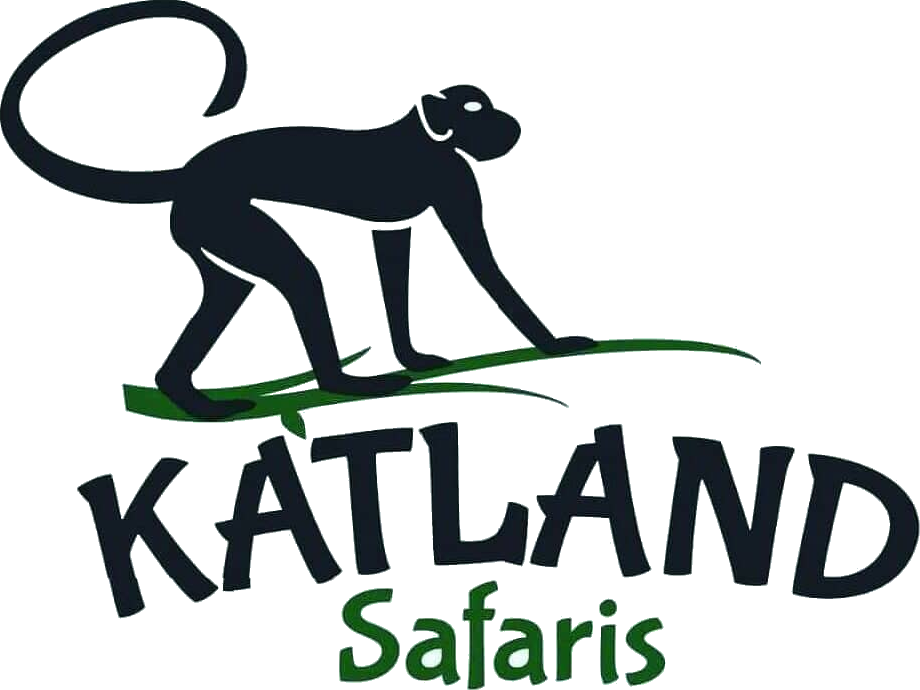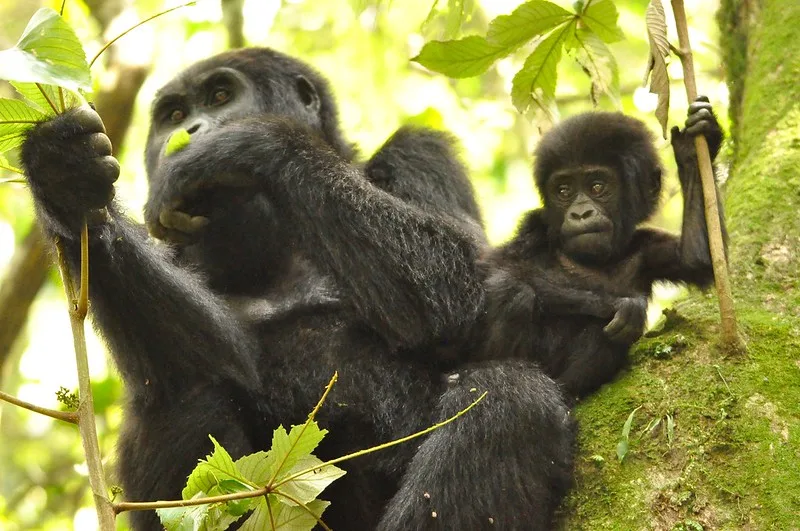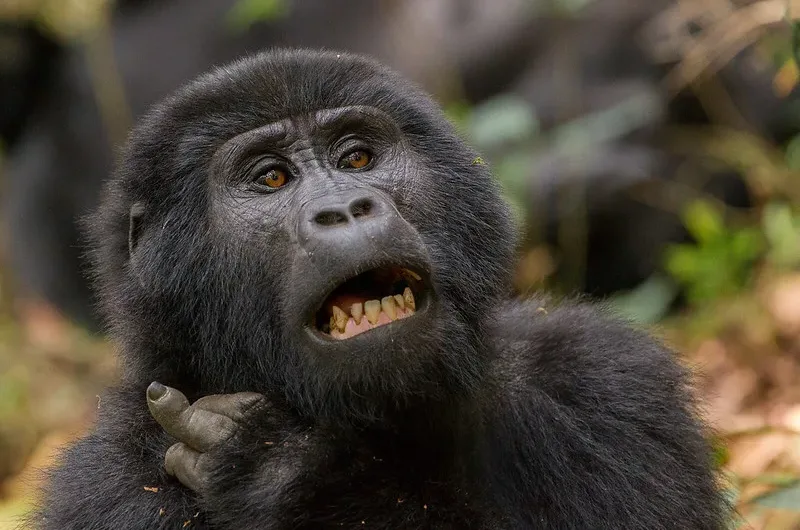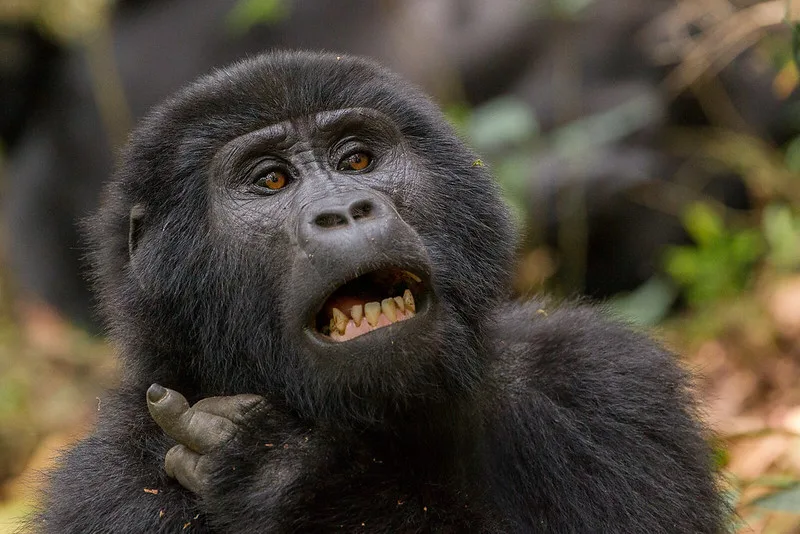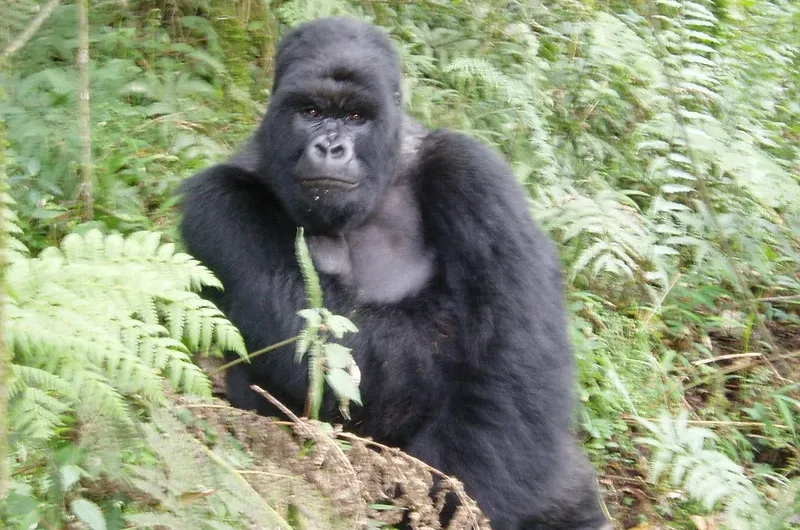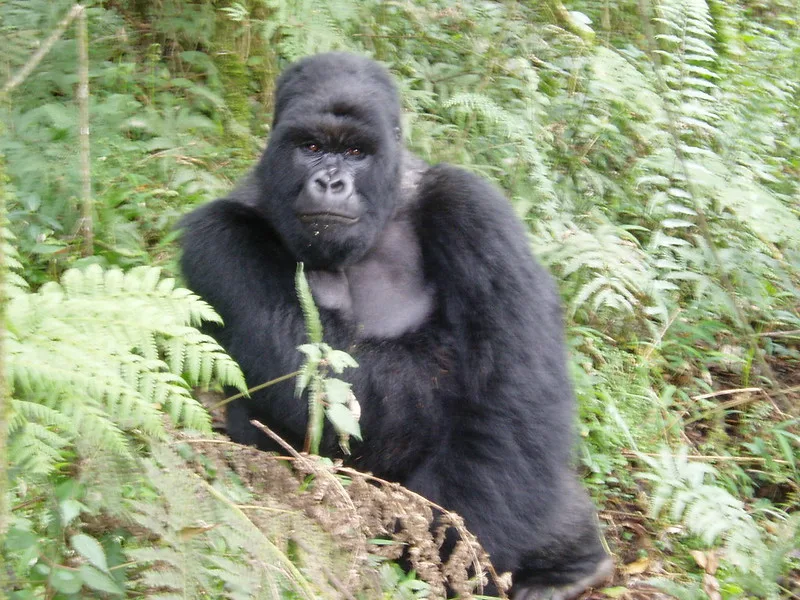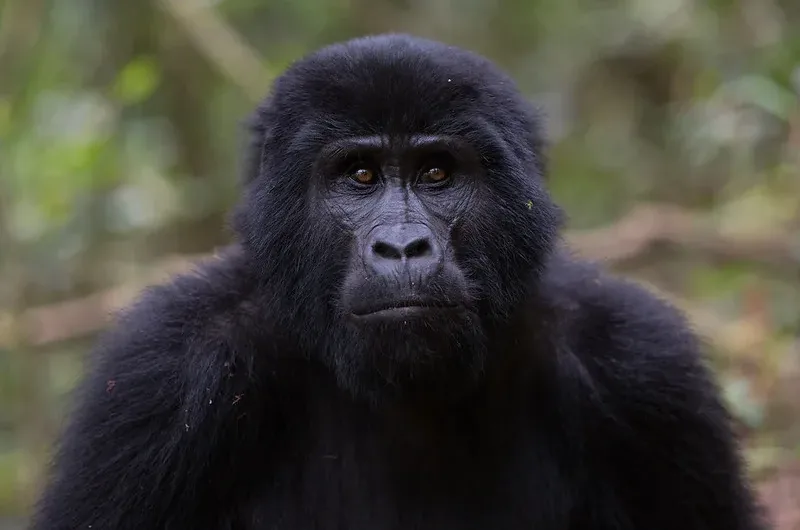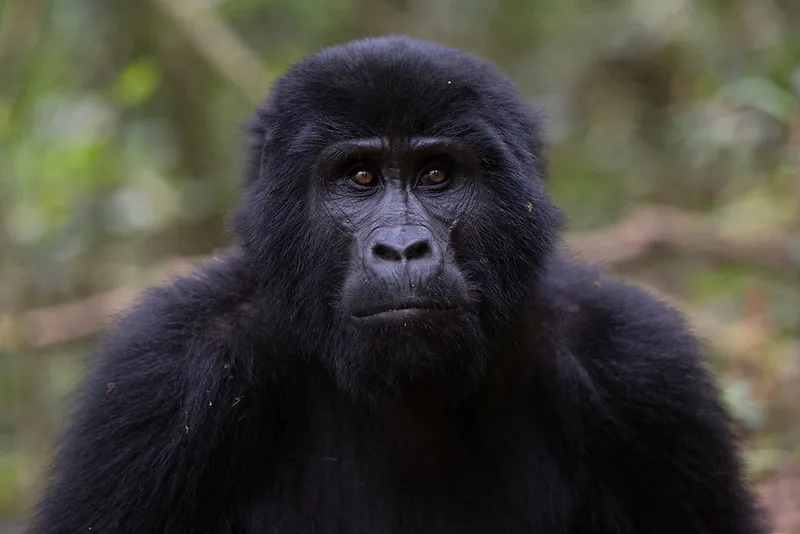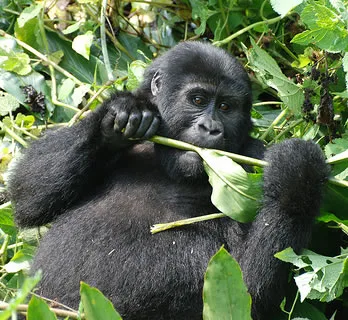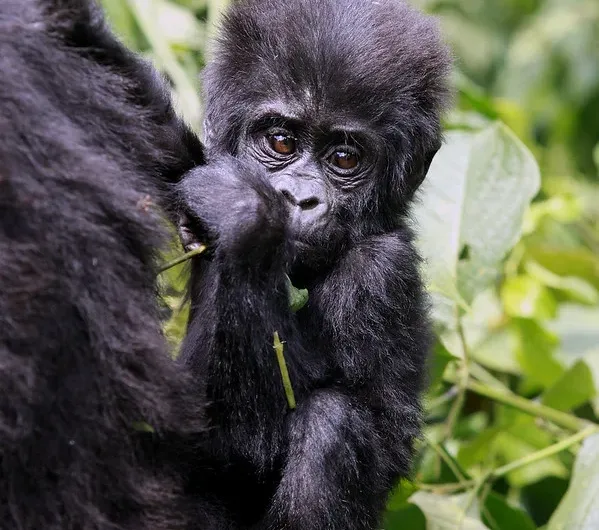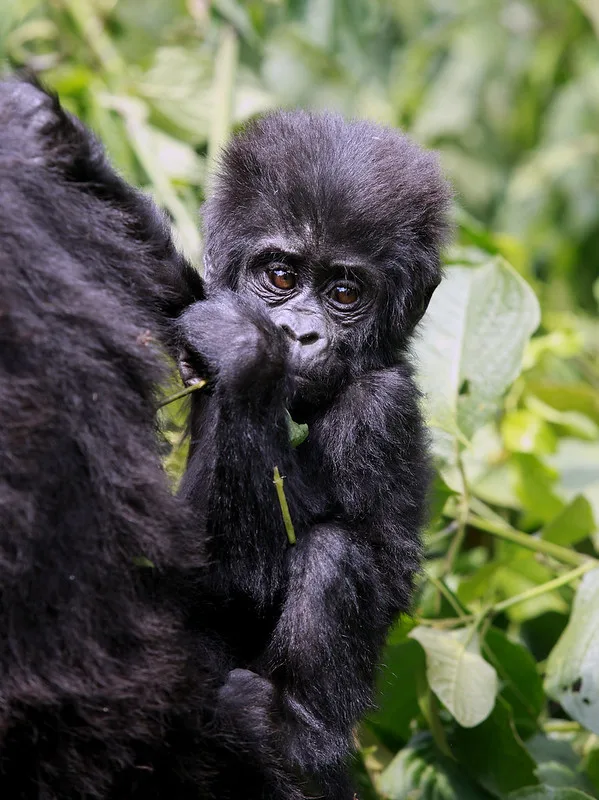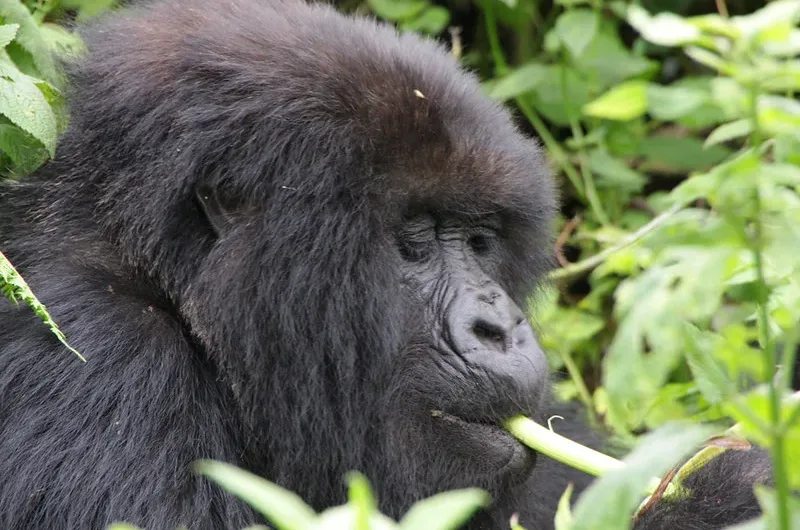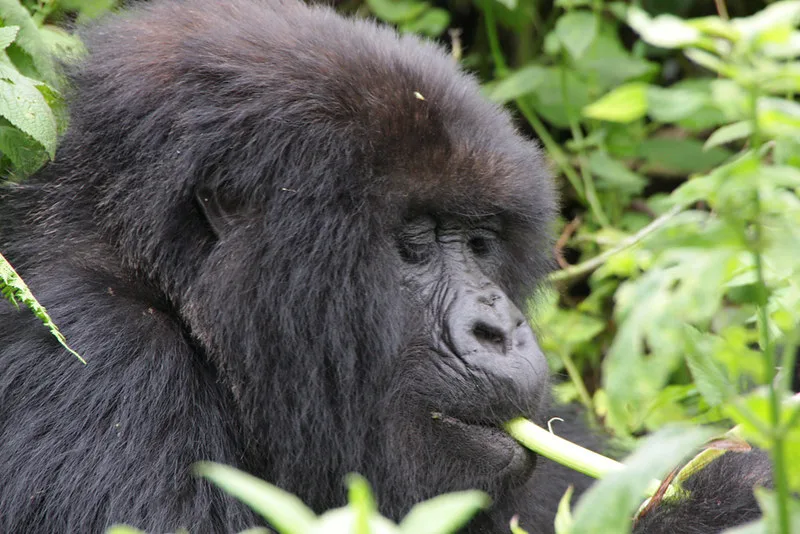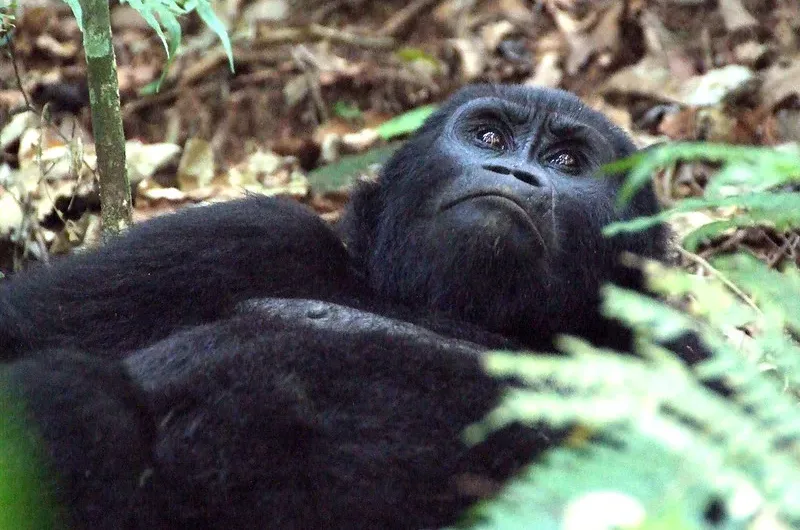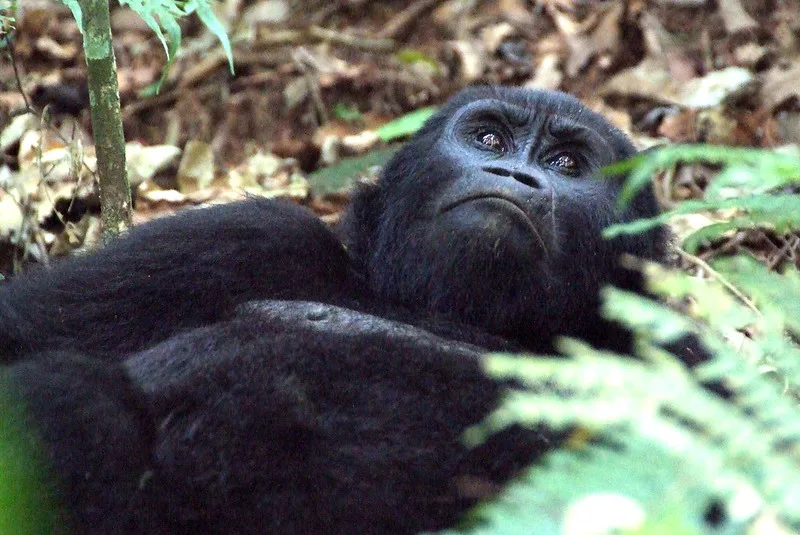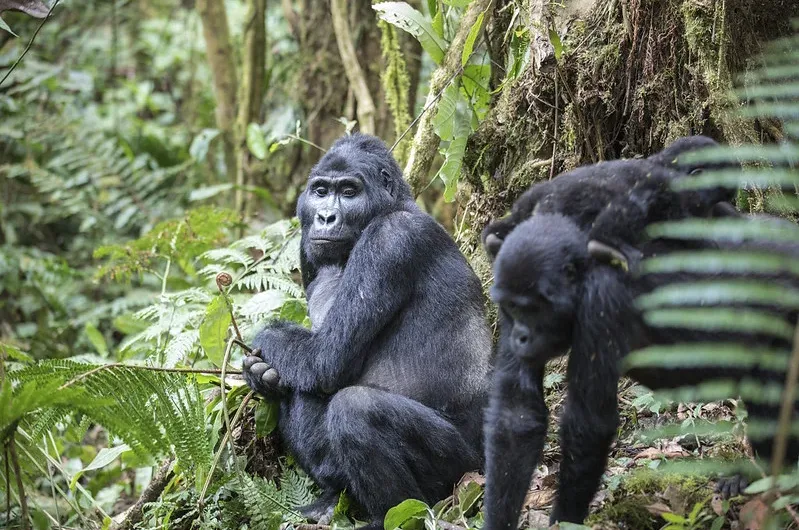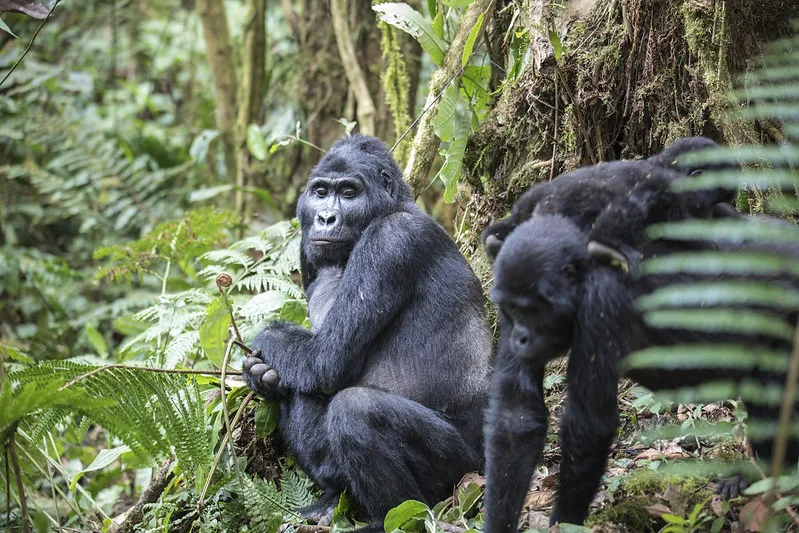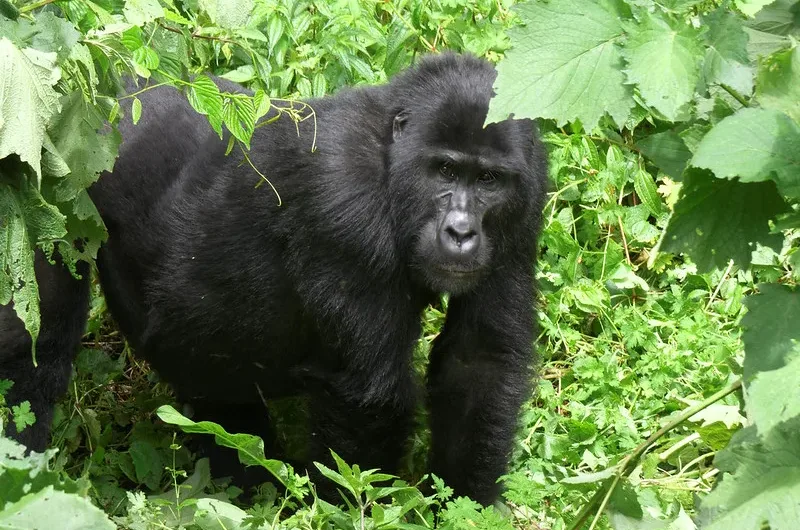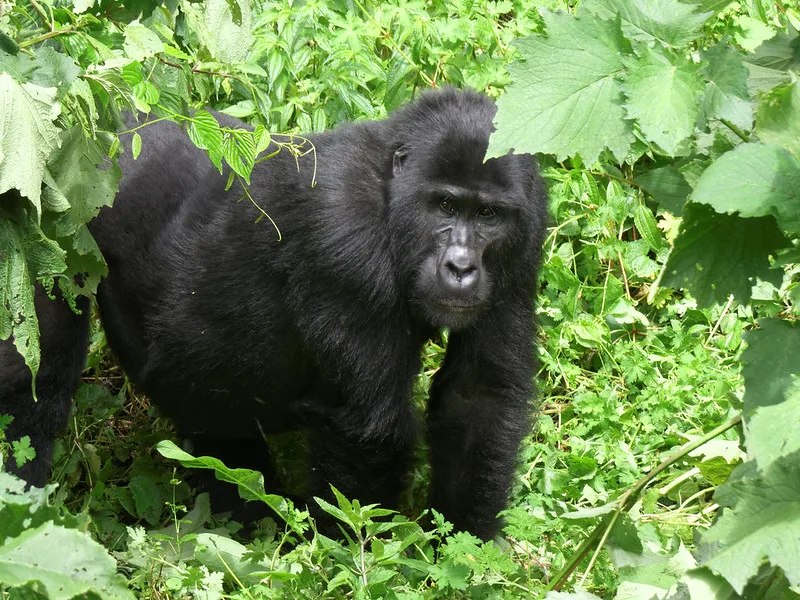Included in a gorilla habituation permit price, cost.
It is crucial to understand what is included in a gorilla habituation permit as gorilla habituation experiences are one of the newest and most interesting products of gorilla trekking in Uganda. The most recent and fascinating product in the gorilla trekking market, the gorilla habituation experience, is now available only in Uganda.
Spend as much as four (4) hours in the company of mountain gorillas in Bwindi Impenetrable National Park on a gorilla habituation experience trip, vacation, or trek. Here in the southern section of Bwindi Impenetrable National Park, researchers and specialists from the Uganda Wildlife Authority are now acclimating fresh families of gorillas for this four-hour trekking excursion.
The cost of a gorilla habituation permit includes
Current tariffs from the Uganda Wildlife Authority indicate that non-resident foreigners must pay $1500 for a gorilla habituation permit, while foreign residents with work licenses must pay $1000.00, and East African citizens must pay 750,000 Ug shs.
Considering that a typical gorilla climb costs USD700.00 per person for an hour, this is a rather pricey activity. Whatever the case may be, before making a reservation or final decision, it is important to understand just what a gorilla habituation permit cost entails.
Enjoy a four-hour encounter with gorillas
For $1500, you may spend up to four hours in the company of habituated mountain gorillas in a single day, as opposed to the standard one-hour gorilla habituation in Rwanda (at Volcanoes National Park) or Uganda (at a cost of $700).
As a result, you’ll end up saving both time and money. Because the standard gorilla trek permit in Rwanda permits just one hour per day with mountain gorillas and the gorilla permit in Uganda only allows one hour per day, a four-day journey is required to reach fours with mountain gorillas in Rwanda or Uganda using the conventional method.
Uganda has to devise these mountain gorilla experience permits to aid those who are short on time but yet want to spend plenty of time with these amazing primates.
With a gorilla habituation permit, you may save up to 900 USD for foreign non-residents and 1500 USD for foreign residents. This adds out to a total of $2400 USD for the four gorilla permits, spread out over four days, if you want to hike with mountain gorillas in Uganda for four hours using the regular USD800gorilla permits.
Consequently, a four-hour gorilla adventure in the southern portion of Bwindi Impenetrable National Park is a prudent and affordable investment of $1500 or $1,000. Even more impressive than the outrageously priced USD1500 gorilla hike in Rwanda, which lasts only one hour, is the gorilla habituation experience. You may spend up to four hours in the company of mountain gorillas with Uganda’s gorilla habituation permit, so there’s really no excuse not to visit the country.
Entrance fees to parks are part of a gorilla habituation permit.
Bwindi Impenetrable National Park admission is included in each gorilla habituation experience permit. As of right now, the Uganda Wildlife Authority is charging USD $40 per person, per day, for admission to major national parks. You won’t have to worry about shelling out any more cash for park fees since your gorilla habituation permits already cover them.
A habituation permit for gorillas includes researchers and gorilla guides.
Professionally trained ranger guides and researchers or specialists responsible for habituating wild mountain gorillas to humans lead gorilla habituation experience safaris, vacations, or treks, in contrast to the typical one-hour gorilla excursion.
Experts in the field are the only ones capable of completing the long process of habituating wild mountain gorillas to humans. Consequently, these specialists will lead your gorilla habituation experience excursion or vacation in Rwanda and Uganda with extensive expertise of mountain gorillas.
Katland’s gorilla habituation experience safaris put you at ease by ensuring that your four-hour journey with the habituated primates is led by highly qualified researchers and specialists in the field.
In addition to taking pictures and notes
Instead of the one-hour gorilla trekking permits, individuals are opting for the gorilla habituation experience permits for a number of reasons.
Why? Because with a gorilla habituation experience permit, you can do more than just watch and take pictures or videos—you can also listen to knowledgeable speakers and take part in activities that help the mountain gorillas become used to humans. Stool collecting, person identifying, call-making, and a plethora of other things fall under this category. Consequently, it is not your average hour-long trip with gorillas.
A habituation permit for gorillas includes security measures
While visiting Bwindi Impenetrable National Park to habituate with gorillas, you may be certain that the Uganda Wildlife Authority and the Ugandan government would take all necessary precautions to keep you safe.
The safety and security of visitors to the forest may be assured since all of the ranger guides and trackers hired by the Uganda Wildlife Authority have received paramilitary training. In addition to the aforementioned measures, the security of tourists in Uganda is overseen by a dedicated police unit known as the Uganda Tourism Police.
Your safety in Bwindi Impenetrable National Park depends on having a gorilla habituation permit. To ensure your safety and to ward off any wild creatures you may encounter on your journey, rangers from the Uganda Wildlife Authority carry AK-47 rifles.
You will get a certificate following your gorilla habituation expedition in Bwindi Impenetrable National Park, which is part of your gorilla habituation permit. The gorilla habituation certificate serves as a memento of your involvement in efforts to protect the mountain gorillas of the Virunga Massif, which are in danger of extinction. It is also a record of your accomplishments.
Feel free to contact Katland Safaris with any questions you may have regarding our 3-day gorilla habituation experience safari or our 5-day gorilla and chimpanzee habituation trip, all of which feature gorilla habituation experiences. Safari bookings and TripAdvisor reviews consistently rank Katland Safaris as the best destination safari company in Rwanda and Uganda. Get in touch with us if you are interested in private, group, or tailor-made safaris to Rwanda and Uganda.
Please do not hesitate to contact our expert safari planners via email or phone if you would need more information about the contents of a gorilla habituation permit or would like to schedule a reasonably priced four-hour gorilla trek. Contact us, and we will provide you with the most current and trustworthy information and guidance that you can depend on while organizing an unforgettable gorilla habituation experience.
